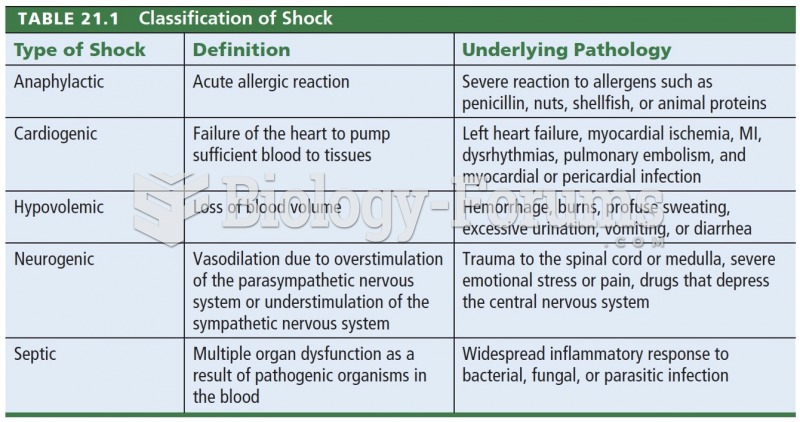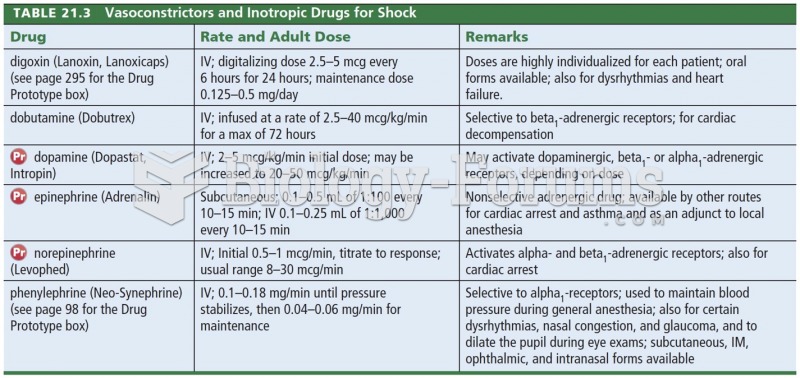This topic contains a solution. Click here to go to the answer
|
|
|
Did you know?
There are 60,000 miles of blood vessels in every adult human.
Did you know?
If you could remove all of your skin, it would weigh up to 5 pounds.
Did you know?
Approximately 25% of all reported medication errors result from some kind of name confusion.
Did you know?
Long-term mental and physical effects from substance abuse include: paranoia, psychosis, immune deficiencies, and organ damage.
Did you know?
Human kidneys will clean about 1 million gallons of blood in an average lifetime.







